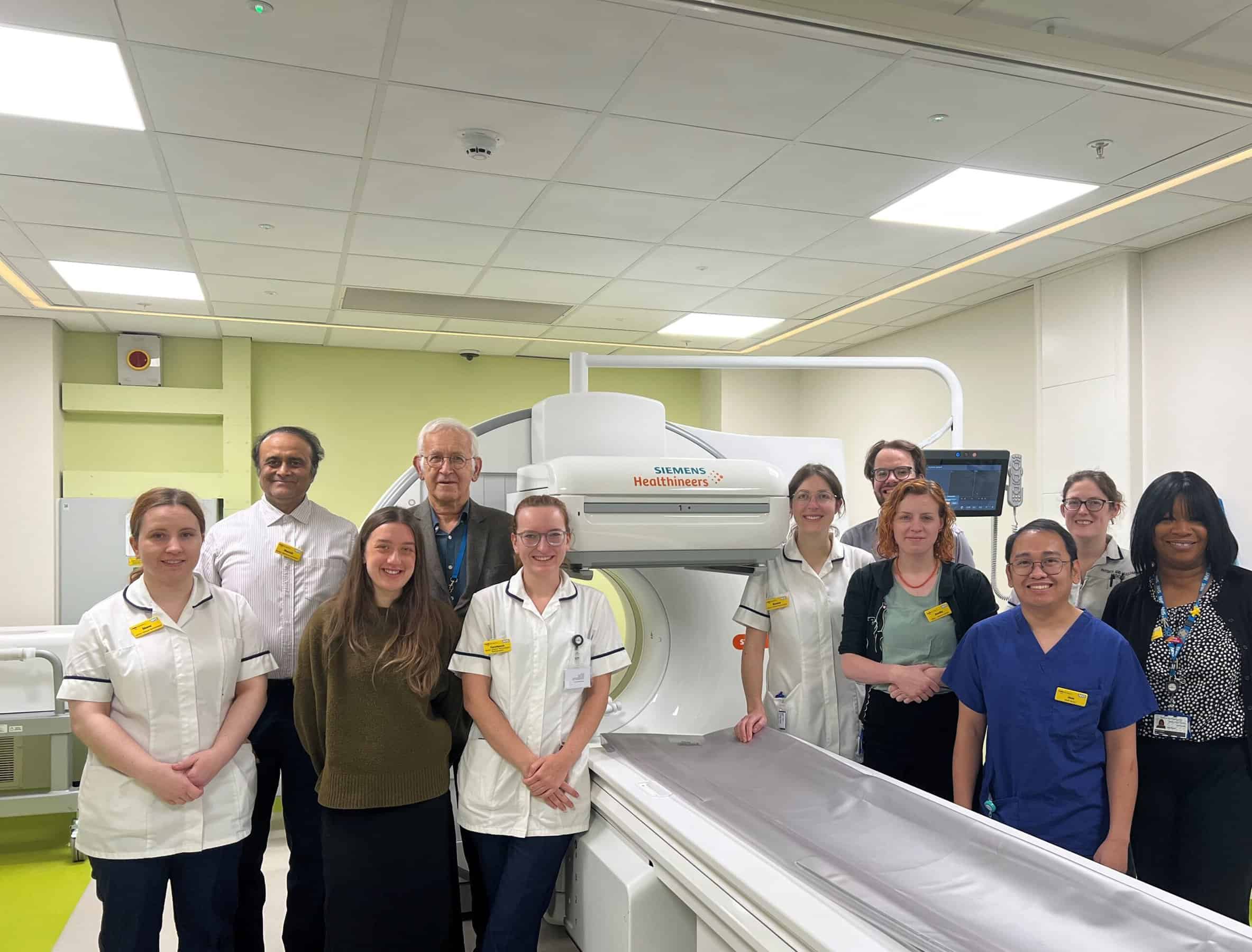
Patients across Sandwell and West Birmingham can now expect faster and more accurate diagnoses for serious illnesses following the opening of a state-of-the-art facility that boasts the latest medical imaging technology.
The nuclear medicine department at the Midland Metropolitan University Hospital (MMUH) has unveiled three cutting-edge scanning machines that can detect complex health conditions with remarkable precision.
These advanced systems combine two types of scans in one, allowing doctors to see both the body’s internal structure and how its organs are functioning in remarkable detail.
Joseph O’Brien, Consultant Physicist and Head of Nuclear Medicine at Sandwell and West Birmingham NHS Trust, which runs MMUH, said: “We are excited to launch this innovative new department with the latest imaging technology on the market, which will not only enhance diagnostic accuracy but also set a new standard in the way we approach nuclear medicine.”
The new department has three Siemens Pro.SPECTA SPECT/CT systems that only came on the market last year. These sophisticated machines bring excellent diagnostic precision, enabling more accurate localisation of abnormal tissue and improved lesion detection across oncology, cardiology, and neurology.
The manufacturers, Siemens, went the extra mile by providing bespoke lenses tailored specifically to MMUH’s requirements, including specialised equipment for detecting pulmonary embolism, which can be fatal, and a chronic stomach condition known as bile acid malabsorption.
“The new technology will be particularly beneficial for patients with cancer, heart conditions, brain disorders, and complex internal health issues,” Joe explained. “Patients can now expect quicker, more accurate diagnoses for serious conditions, reduced radiation exposure during medical scans, a more comfortable scanning experience, and faster turnaround of test results.”
The new department is the result of close collaboration between the MMUH commissioning team and the nuclear medicine team from the former City Hospital. The facility has been carefully designed to support patient comfort and care, which is particularly important as nuclear medicine tests can be time-consuming, with some patients requiring all-day care.
The facility will accommodate inpatients from other hospital, ensuring they receive treatment with a high level of dignity and support.

